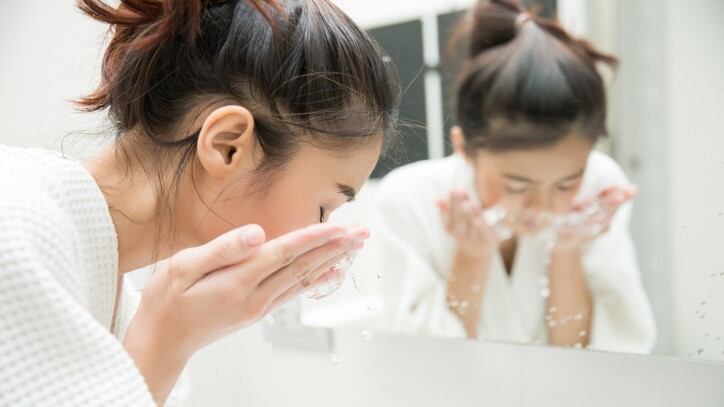BioToLife is a glycolipid that is derived from the fermentation of Starmerellabombicola yeast, derived from rapeseed oil and sugar.
Francesco Romagnoli, head of marketing for the hair, body and oral care segment for BASF, described BioToLife as an ‘ingredient that comes from evolution’.
“This comes from nature technically. It comes from fermentation – like making wine or beer, just Instead of using water and hops, we use oil and sugar.”
The ingredient has a ‘surfactant-like’ effect due to its unique chemical structure.
“The very specific point of this ingredient is… the Starmerellabombicola makes a reaction that closes this molecule into a ring called lactone that is effective against microbials,” said Romagnoli.
This ingredient is effective against a range of microbials, especially biofilm-producing microbials.
Romagnoli explained that bacteria of the same species are known to produce an external matrix to facilitate the growth of itself and its progeny, hence producing biofilm.
“This creates layers of cells that entangle with the matrix which sticks to the surface very thoroughly. You can consider the biofilm as a nursery to nurture and protect the progeny.”
He added that the proliferation of biofilm is considered a major issue in many areas, from personal care to water supply.
“BioToLife is able to remove the biofilm exactly because of the lactone which is able to penetrate into the deep layer of the biofilm, delaminate it so the biofilm becomes weaker and easier to remove.”
Sensitive skin focus
Sandy Cheung, head of BASF’s consumer insights and digital solutions suggested that BioToLife will have a lot of potential in the sensitive skin care market.
Cheung noted that the company has observed more skin care products on the market that cater to sensitive skin.
“At the beginning, sensitive skin was considered a certain skin type, and now it’s a condition because of external aggressors related to lifestyle and stress. So, you can see it has become a very widespread concern that everyone wants to have a solution to. It’s also related to conditions like acne, and this has resulted in huge demand for sensitive skin products.”
As such, the firm expects an increasing demand for natural-based facial cleansers which consumers perceive as gentle and good for sensitive skin.
“In the last one to two years, when people think about cleanser or other skin care products, they want it to be mild. The consumers believe that natural ingredients are mild and that's why it can tackle the sensitive skin issue well,” said Cheung.
Romagnoli added: “The positioning of our solution is perfectly in line with what the consumer might want. Also, they will not be expected to change their habits. The foam is okay, the cleansing power is okay. On top of that you have this benefit of naturality and efficacy.”
Furthermore, the firm expects the acceleration of certain trends due to the novel coronavirus (COVID-19) pandemic to drive the demand for ingredients that are microbiome-friendly.
“From a wellness perspective, they want a strong immunity, not just for their body but for the skin. So, the microbiome is one of the hit topics among skin care products. We are seeing that brands like Lancôme and Origins trying to revamp their communication around microbiome,” said Cheung.
Wide-ranging potential
Romagnoli told CosmeticsDesign-Asia that the firm has seen very high interest in BioToLife from the industry.
Moving forward, the company intends to further its research into this technology and expand its applications.
“You can imagine that this technology has super wide potential that's still to be fully explored. Now we are actively working on anti-dandruff, anti-acne, feminine wash and oral care,” said Romagnoli.
Beyond cleansing, the company intends to look into its potentials as a skin care ingredient, Romagnoli said.
“It’s microbiome-friendly, respectful to the skin. And it may be able to mitigate the use of standard preservatives. If this ingredient blocks the growth of bacteria, can we also reduce the preservative concentration in a standard formulation? This is an area for further investigation.”





